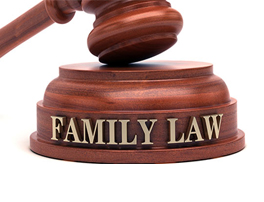
When a divorce occurs, the division of marital and financial assets is a necessary step in the divorce proceedings. One aspect of this that often comes into play is Social Security benefits, or pension benefits. There is a federal statute in place that states that Social Security is not a marital asset and cannot be divided between spouses during a divorce. This law does not cover other pension benefits, meaning that any pension benefits that a spouse receives instead of Social Security can be divided as a marital asset. Social Security benefits may come into play in certain jurisdictions when other assets are divided.
Social Security is a defined benefit pension plan in the eyes of the federal government. Government employees, however, can put money into their government pension plans without contributing to Social Security. This makes a percentage of their pensions a legitimate Social Security substitute that is considered a marital asset that can be divided in a divorce. When a government employee contributes to a pension in this way, a portion of the money is considered “hypothetical” Social Security and the rest is considered actual pension.
How Pension Benefits are Divided
A pension benefit plan must first be reduced to its current value before it can be divided up. The present value is used to determine the portion of the benefits that can be rewarded to the spouse through an offset division of marital assets. Applying an offset to the pension benefits reduces the value of the benefits that are subject to division, and the offset is based on the hypothetical and actual benefits.
In cases in which a government employee contributes to a pension plan but does not pay Social Security taxes, the amount of Social Security benefits available to them and their spouse or widow(er) is reduced. The federal government will apply one of the following offsets to compensate:
- Government Pension Offset (GPO): When a government employee gets a pension that substitutes for Social Security, two out of every three dollars received is deducted from the benefits that a spouse or widow(er) can receive. This means that if $900 is contributed to the pension each month, two-thirds of that amount, or $600, is taken from the potential benefits of the spouse or widow(er). Therefore, if the spouse or widow(er) is eligible for $700 of Social Security benefits, the $600 will be deducted from this and they will receive $100 in benefits each month. A spouse can choose to take the Social Security benefits in one lump sum, and the reduction will still be applied as if they chose monthly payments. With this offset, the government is calculating the Social Security taxes of government workers who do not pay Social Security to ensure it is taxed the same as it would for a private citizen who pays into Social Security.
- Windfall Elimination Provision (WEP): This provision is applied to the benefits of those who have earned a pension from their employer and paid Social Security taxes, and who are also qualified to get Social Security benefits from other employment. The reduction from a WEP could be up to half of the total benefits. This provision is not applied to the benefits of widows and widowers.
Are You Eligible to Receive Pension Benefits in a Divorce?
As discussed above, the federal government does consider retirement pensions that are not Social Security marital assets that can be divided and awarded to the other spouse. However, a spouse must meet certain criteria to be eligible to receive pension benefits from their ex-spouse. A spouse is eligible to receive benefits if:
- The marriage lasted over 10 years
- The spouse is not married
- The spouse is 62 years old or older
- The ex-spouse is entitled to Social Security or disability benefits
- The benefit from the ex-spouse is bigger than the benefit than the spouse would receive from their own pension.
The spouse seeking benefits from an ex-spouse must meet all of the criteria listed above. They can receive up to one half of their ex’s full benefits if they wait until they are retirement age to start receiving the benefits. A spouse can also receive benefits from an ex-spouse that has not applied for retirement benefits, but qualifies to receive benefits.
Remarriage
Getting remarried affects the way that pension benefits are rewarded after a divorce. Usually, a spouse cannot collect benefits from an ex once they remarry. If the marriage ends, the spouse can collect benefits from the previous ex-spouse. For widows and widowers, they are not eligible for benefits if they remarry before turning 60. If a widow or widower makes it to the age of 60 without remarrying and they are receiving benefits, they can remarry without losing their benefits.
Family Law Attorneys
Divorce proceedings can get rather complex when financial assets are divided, especially when Social Security benefits are involved. There are many laws and regulations to navigate to determine if a spouse is eligible to receive pension benefits from an ex-spouse and how much they are entitled to.
If you are seeking pension benefits from an ex-spouse, the divorce attorneys of Allen Gabe Law, P.C. can help. Our experienced attorneys know the laws regarding pension benefits and can help you understand what you are eligible to receive from an ex-spouse.
Contact Allen Gabe Law, P.C. at (847) 241-5000, Ext 121 to speak with one of our divorce attorneys.







